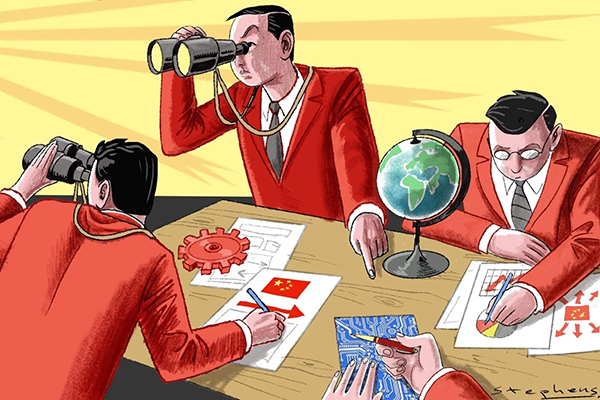China and the World: perspectives from eight European ambassadors to China
March 15 , 2022CCG’s new book China and the World in a Changing Context: Perspectives from Ambassadors to China was recently released online. This open access book presents China and a changing globalized world from the perspective of 23 ambassadors to China, covering key development topics including economic growth, foreign policy, and SDG-related themes. In this article, CCG presents perspectives from eight European ambassadors to China.
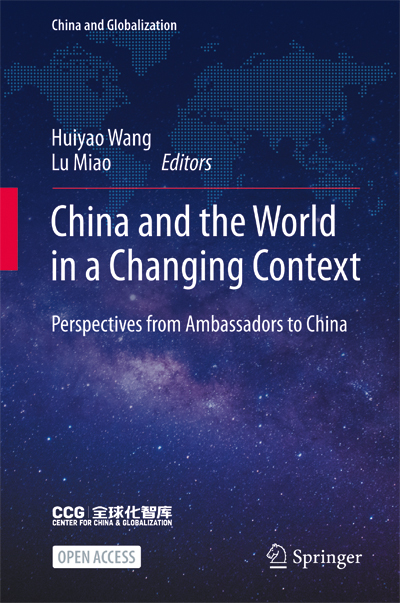
China and Ireland Economic and Finance Cooperation
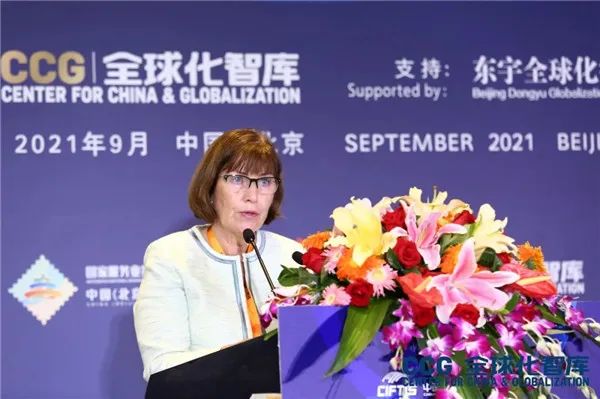
H. E. Ms. Ann Derwin
Ambassador of Ireland to the People’s Republic of China
Aligned with our commonalities, we have witnessed continual growth in our trading relationship in the decades since the establishment of diplomatic relations in 1979. This growth has increased rapidly in the last number of years with bilateral trade in goods and services rising from approximately EUR 7 billion in 2013 to over EUR 24 billion in 2019.
Despite the current pandemic, we continue to enjoy very strong trade flows. The year 2020 witnessed approximately EUR 16.8 billion in trade in goods comprised of over EUR 10.5 billion in Irish exports to China and EUR 6.2 billion in imports from China to Ireland. This represents an impressive 18% year on year growth from 2019.
Outside of trade flows, there are also many compatibilities between Chinese and Irish economies. Many of the highest priority areas contained in the recently announced 14th Five-Year Plan such as sustainable urbanisation, innovation, research and development, green development and regional development are areas, in which key Irish policy makers have a keen interest. Furthermore, in many of these areas, Ireland is highly ranked in global rankings.
Perspectives on Spain—China Relations
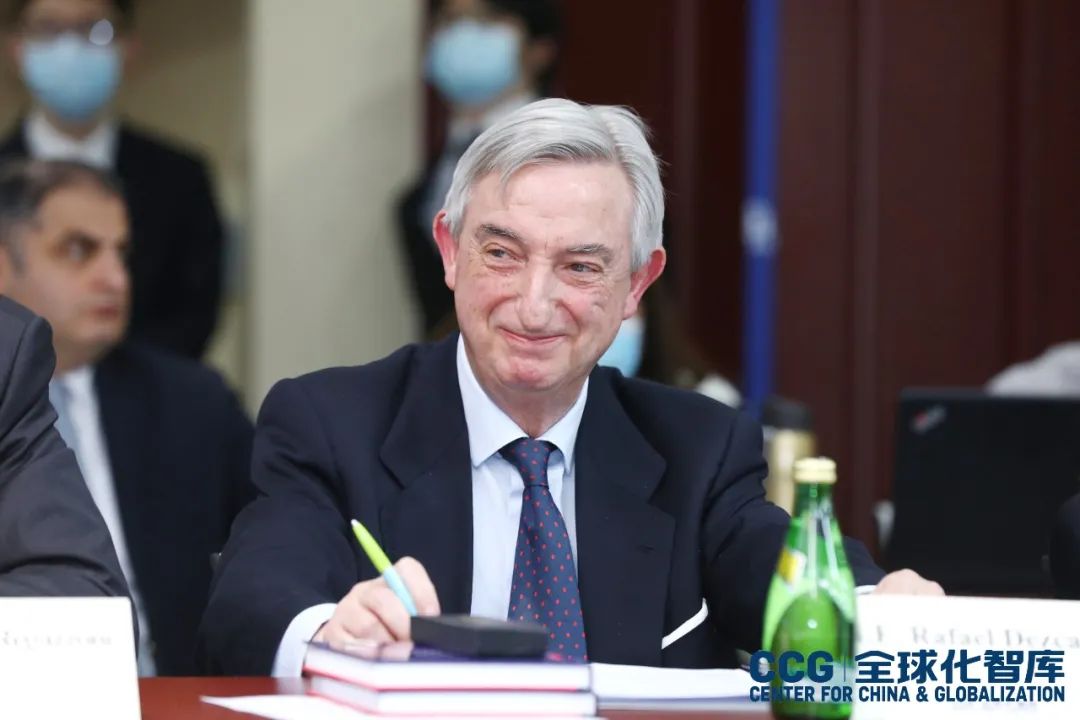
H.E. Mr. Rafael Dezcallar de Mazarredo
Ambassador of the Kingdom of Spain to the People’s Republic of China
Chinese authorities are also seeking to create smart cities in an attempt to respond to the challenges posed by its rapid urban development, providing higher quality services as urbanization rates reach 60%. As a consequence, there are numerous market opportunities within the construction, transportation and logistics sectors.
China is a priority trade partner in Spain’s strategy to attain a greater level of market diversification and internationalization. In fact, Spain has already set out a strategic industry-specific action plan that matches local companies with suitable opportunities in China’s emerging industries.
The growing presence of the Spanish language in China’s education system and closer relations between Spanish and Chinese cities have prompted the signing of numerous agreements on collaboration in educational projects and the exchange of international students and lecturers. The China–Spain Network of Researchers (RICE) stands out among the existing initiatives in this field, as it aims to promote the work of China-based Spanish researchers and foster academic exchange, providing information and support to researchers and institutions that wish to work in China.
Figures confirm that the pandemic has not held back investment projects, reflecting the existing climate of trust among Spanish and Chinese companies. In the third quarter of 2020, investment outflows from China to Spain reached EUR 439.4 million, compared to EUR 49.5 million in the third quarter of 2019. Spanish investment outflows to China reached EUR 1.811 billion in the third quarter of 2020, EUR 1.773 billion of which were in the pharmaceutical sector. This is a considerable increase compared to EUR 50.8 million in the same period of the previous year. At the end of March 2020, GRIFOLS acquired a 26% stake of Shanghai RAAS’s social capital, allowing the acquired company to become the exclusive distributor of GRIFOLS plasma and transfusion diagnosis products in China.
Amid current global economic uncertainties, Spain and China must continue to work on forging a strong alliance and a cooperation framework to enhance economic development, growth stability and social welfare.
Toward Building New Sino—Dutch Green Partnerships

H.E. Mr. Wim Geerts
Ambassador of the Kingdom of the Netherlands to the People’s Republic of China
The Netherlands and China are already working together in many areas linked to climate goals. We have a long history in energy cooperation, especially in offshore wind, and have cooperated extensively to make agriculture more sustainable and improve food quality. We have also worked intensively on water management, in areas including sponge cities and river basin monitoring, environment and transport, and last but not least, we have seen strong growth in scientific collaboration over the years.
In these times of economic turbulence and geopolitical changes, it is important that we continue to invest in our relationship and join forces to deal with the challenges ahead, and climate change is the most important global challenge of our time.
Global Context of the Polish—Chinese Relations
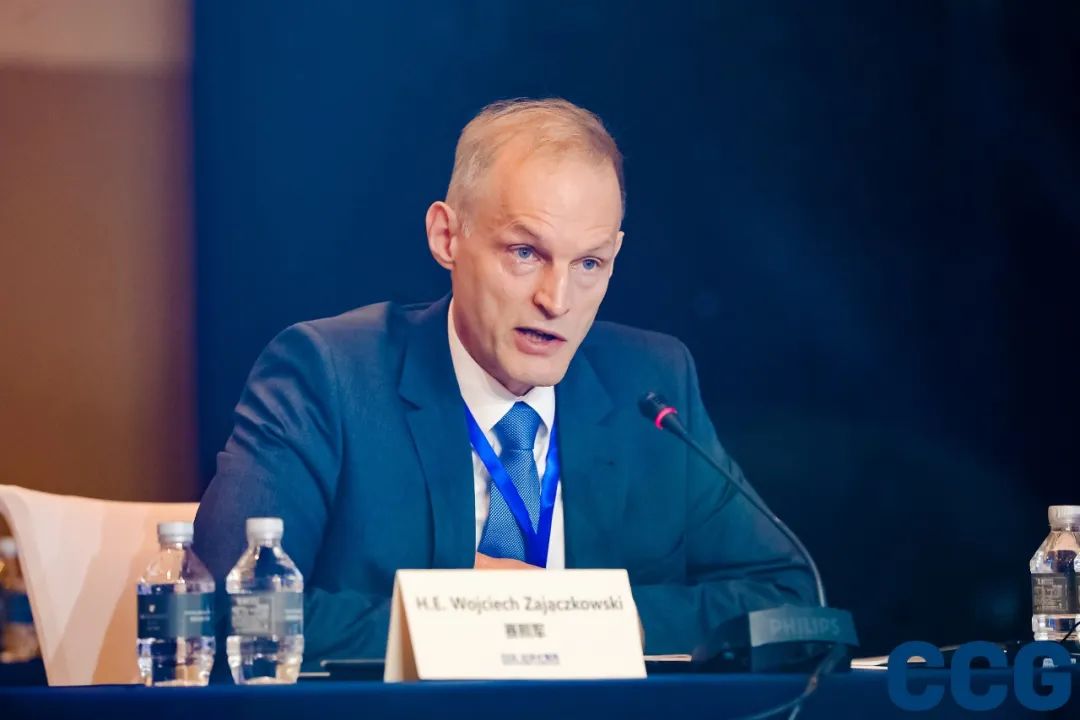
H.E. Mr. Wojciech Zajączkowski
Ambassador of the Republic of Poland to the People’s Republic of China
Nowadays, we are interconnected with China in many different ways, with industrial production chains stretching from East Asia to Europe; therefore we should closely work on creating an economic environment that would bring sustainable growth to all interested parties.
Since early 2020, the world has been occupied with the COVID-19 pandemic. While this public health crisis has on its own brought challenges unseen for decades, it also made more visible, and in some cases accelerated trends that have already been developing for some time. A reverse in globalization and bottlenecks in international trade, both marked by a trend of greater self-reliance in some countries, as well as pressing needs coming from the climate change, are profound examples of such processes. They also demonstrate the need for upholding a rules-based multilateral system to deal effectively with global problems. To address all of the aforementioned challenges, the world needs China, just as much as China needs the world. This seems especially poignant when thinking about the economic recovery from the pandemic and the post-pandemic world order.
The Blue Marble: An Essay on the Commonality of Human Experience
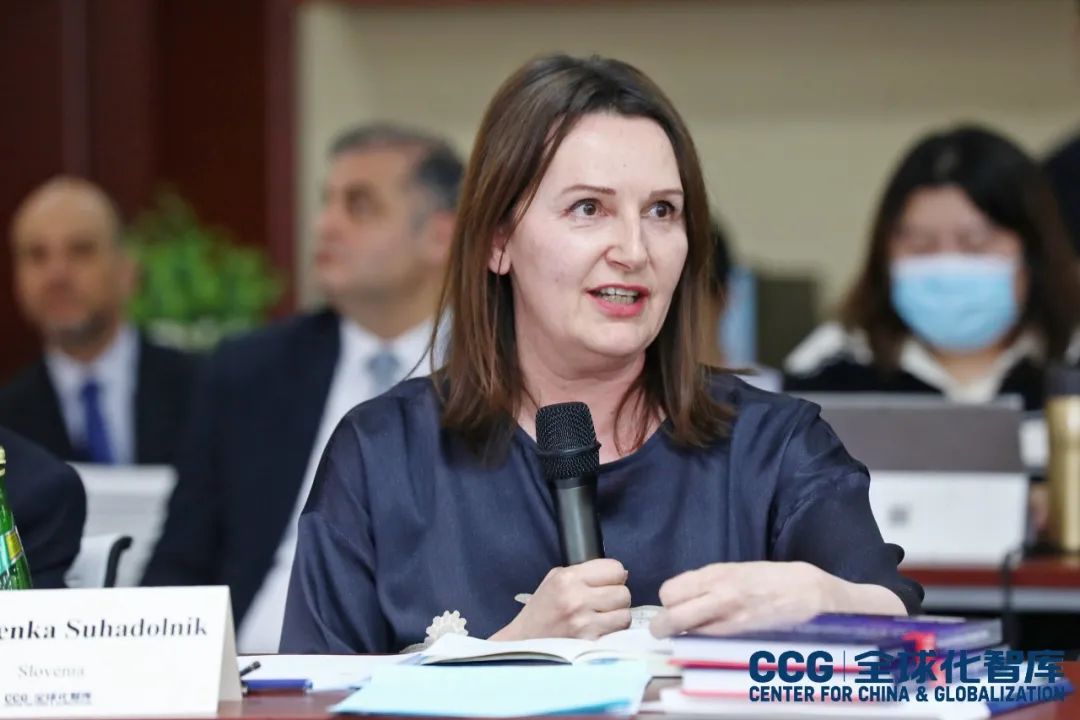
H.E. Ms. Alenka Suhadolnik
Ambassador of the Republic of Slovenia to the People’s Republic of China
The Coronavirus crisis has put global public health at the forefront of challenges that are facing humanity. The necessity of a robust public health system and health as a global public good has been put in focus. But we now understand that global public health is not just a matter of national health systems and international health organizations, but also a matter of academia, non-governmental and philanthropic organizations, healthcare workers, as well as individual healthcare activists and advocates. The same sort of activism and building of alliances is needed in order to preserve biodiversity and combat global warming.
In 2020, we learned that investments in science and research can change the world, as we have witnessed in the race for the COVID-19 vaccine, which is by far the largest public health operation in history. If the global community would apply the same vigor, and invest in research and innovation addressing climate change, we could expect the same results on climate health.
On China and Global Trade

H.E. Mr. Nicolas Chapuis
Ambassador, Head of Delegation of the European Union to the People’s Republic of China
I like something that someone said earlier this morning, that the only thing that benefits China in the mid and long term is reform. And if it benefits China, then it benefits Europe because 30% of global growth will come from China. So we need a strong China to have a strong recovery elsewhere, because when you recharge your phone, if there is no electricity, you have no more phone. We need China’s power to continue to drive global growth.
The EU is China’s number one trading partner, but the EU plus ASEAN equals 2/3 of China’s strength. We are major trade and investment partners and we want to push that relationship forward.
Finland’s Open Code for Better Education—Opportunities for Sino—Finnish Cooperation

H.E. Mr. Jarno Syrjälä
Ambassador of the Republic of Finland to the People’s Republic of China(2017/07-2021/08)
Countries all around the world are now focusing increasingly on VET. We all understand the need for highly skilled labor at all levels as our societies become more advanced and more digitalized. Finland carried out VET reform several years ago and China is in the process of going through a similar process. Finland has come a long way in making VET the preferred choice for many youngsters. Perhaps cooperation in VET can be the next success story in our active bilateral relations. The world is increasingly connected and global learning should be an integral part of VET as well.
The Challenges of Diplomacy in a Changing International Order
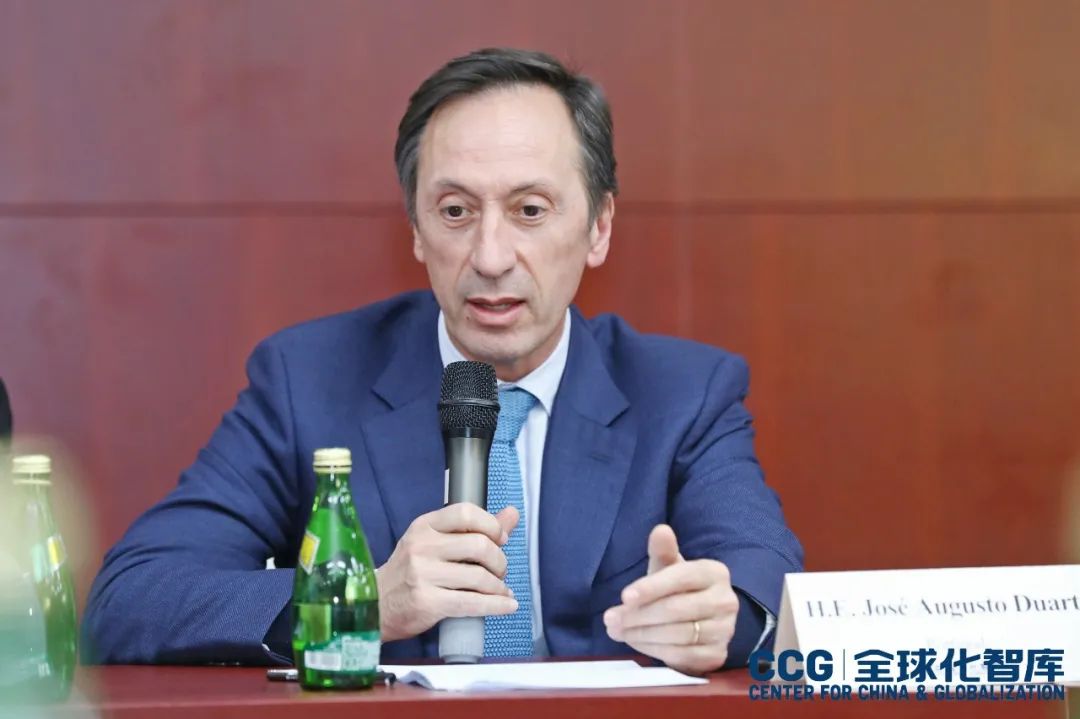
H.E. Mr. José Augusto Duarte
Ambassador of the Portuguese Republic to the People’s Republic of China
In 2020, when celebrating the International Day of Multilateralism and Diplomacy for Peace, United Nations Secretary-General António Guterres said that “it is not enough to proclaim the virtues of multilateralism; we must continue to show its added value”.
In a globalized and interconnected world these words are a testimony to our common responsibility. More than words, we need action. And that action needs to be geared towards protecting an international order that has allowed so many to be lifted out of poverty, that has established dialogue and cooperation as preferential means to handle and ideally solve disputes and that has created the tools, institutions and rules to deal with such pressing global challenges as climate change.
In an age where countries are faced with the erosion of their coast lines, the desertification of their land or a loss of biodiversity that threatens agriculture and biological balance, climate change is a challenge that summons us all. It is, therefore, one where nationalism plays no part, as the gains of the one will be the gains of all, and the loss of the few will be felt throughout the globe.
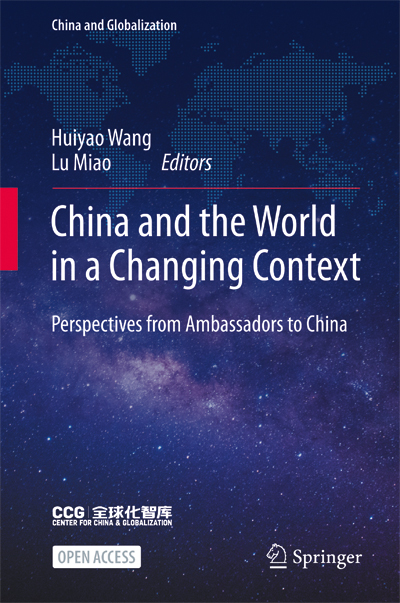
Download Book at Springer: https://link.springer.com/book/10.1007/978-981-16-8086-1
Topical News See more

